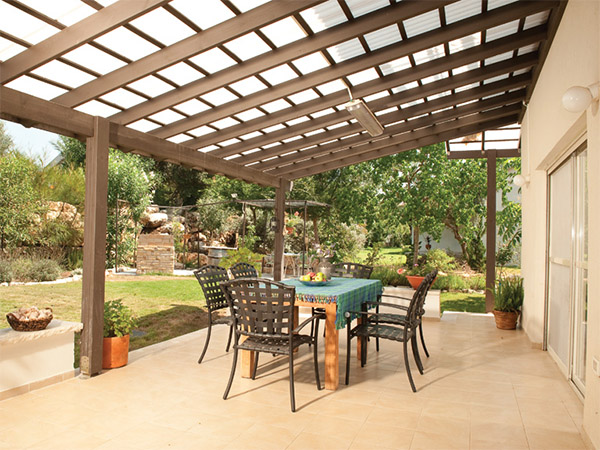Polycarbonate panels are robust sheets composed of thermoplastic polycarbonate. They can be used in various applications since they are impact-resistant, lightweight, and transparent. These panels are essential when building walls, skylights, and roofing because they provide strength and clarity. Polycarbonate Panels Sheets Are the Perfect Choice for you.
Their adaptability can be found in the building of greenhouses, safety barriers, and even protective covers for electronics. This page aims to give readers interested in learning more about or using polycarbonate panels a thorough grasp of the material, as well as its applications, benefits, and things to keep in mind. For more detailed information and additional resources on polycarbonate panels, visit our comprehensive guide here.
Types of Polycarbonate Panels
Solid polycarbonate panels
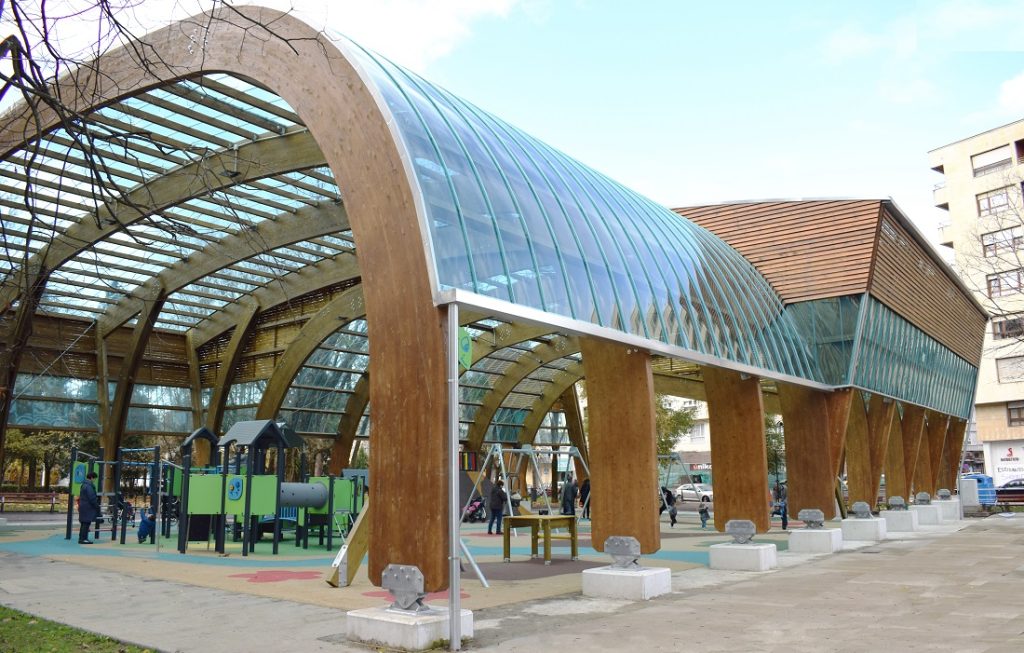
Solid polycarbonate panels consist of dense, resilient, and impact-resistant sheets. They are very clear and are frequently used in robustness-demanding applications, including sound barriers, machine guards, and safety glazing.
These panels are available in various thicknesses to meet diverse applications, from thin sheets for interior barriers to heavier panels for external roofing. Because of their adaptability and endurance, they are widely used in industries where strength and clarity are crucial.
Multiwall polycarbonate panels
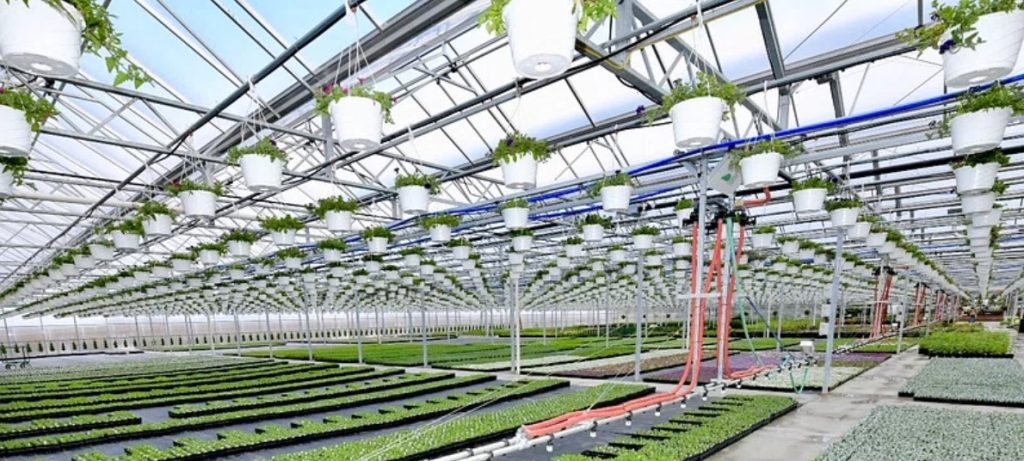
Polycarbonate sheets layered on top of one another with air gaps or channels connecting them make up multiwall polycarbonate panels. This design is impact-resistant, lightweight, and has good insulating qualities.
Applications where thermal insulation and light transmission are crucial, such as roofing, skylights, and greenhouse glass, call for multiwall panels. They are preferred for their energy efficiency and resilience in various weather situations and provide greater strength than solid panels.
Advantages of Polycarbonate Panels
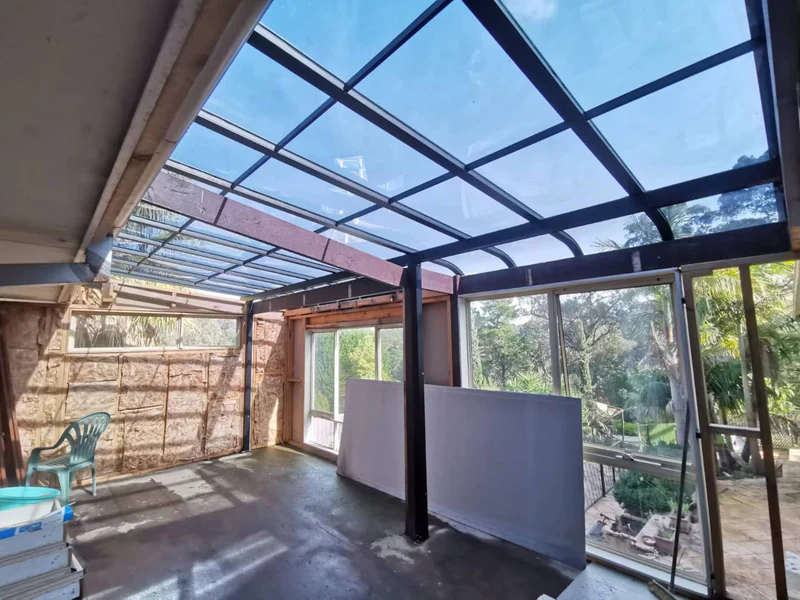
Polycarbonate panels have several significant benefits. First, they are sturdy and resilient, able to bear blows without cracking, which makes them perfect for harsh settings and long-term uses.
Polycarbonate panels are lightweight and easy to handle and install, which lowers labor costs and structural load.
Polycarbonate panels’ resistance to UV radiation is essential for outdoor applications. They shield against sun damage and preserve clarity and strength over time.
Overall, these characteristics make polycarbonate panels an adaptable option for various industries, including electronics, safety barriers, agriculture, construction, and agriculture.
Applications of Polycarbonate Panels
Gardening & greenhouses: Polycarbonate panels are well regarded for their light transmission and durability, which makes them perfect for greenhouses and plant care.
Skylights & Roofing: These panels work well in skylights and roofing because of their strength and capacity to block UV radiation. Polycarbonate panels are a good choice for safety glazing and security applications because of their high impact resistance.
DIY Projects and Construction: They are helpful for both DIY and construction projects because they are adaptable and simple to install.
Comparisons with Other Building Materials
Durability and Strength: Polycarbonate panels are more rigid and impact-resistant than glass, reducing the likelihood of breaking.
Weight: Compared to glass of the same thickness, polycarbonate panels are substantially lighter, which lowers the structural load and simplifies installation.
Insulation: Compared to glass, polycarbonate panels offer superior thermal insulation, which contributes to more efficient interior temperature control.
Cost: As polycarbonate panels are more durable and require less care over time, they can be more affordable in the long run, even though their initial pricing may differ.
Comparison with acrylic panels
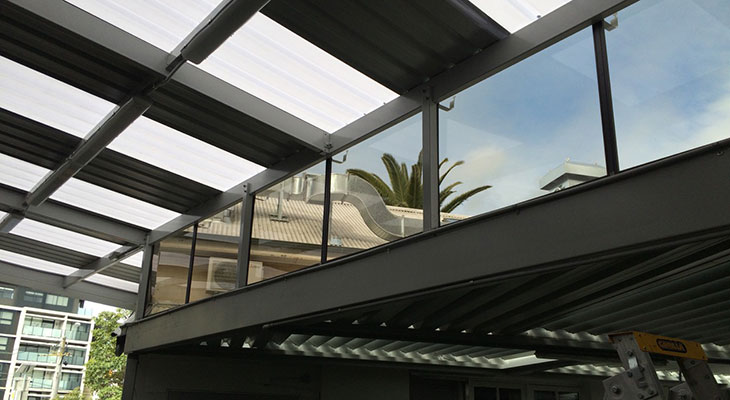
Impact Resistance: Acrylic panels are more prone to breaking or cracking when subjected to severe impacts, whereas polycarbonate panels are more resilient.
Clarity: Although polycarbonate can be treated to increase clarity, acrylic panels typically offer greater optical clarity than polycarbonate.
Flexibility: Polycarbonate panels are more flexible than acrylic panels and less likely to distort underweight.
UV Resistance: Generally speaking, polycarbonate panels are more resistant to UV light than acrylic, which makes them more appropriate for outdoor applications without eventually fading or cracking.
Installation and Maintenance
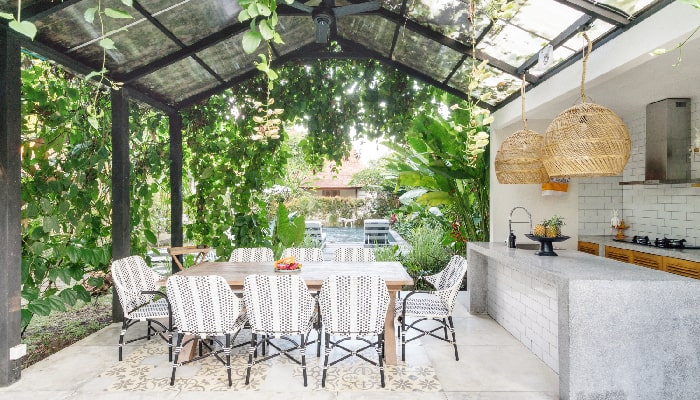
Installation techniques
Using screws and washers, polycarbonate panels are fastened to a frame during installation. To weatherproof panels, they should be overlapped and sealed at the seams with sealing tape. Panel security and avoiding stress cracks are ensured by appropriate support spacing and pre-drilling of holes. For optimal results, adhere to the manufacturer’s instructions.
Maintenance advice for polycarbonate panels
Polycarbonate panels should be routinely cleaned with a mild soap and water solution to dispose of dirt and grime to preserve them. Steer clear of products or harsh cleaners that can scratch the surface. Examine the panels for any wear indicators, such as cracks or discoloration, and take immediate action to fix them. The longevity and clarity of polycarbonate can be prolonged by applying a protective coating made specifically for them.
Buying Guide
Before purchasing, consider aspects like thickness, UV protection level, and particular application requirements like impact resistance or light transmission. Choose the colors and panel sizes that work best for your project. Polycarbonate panels can be purchased online, through specialty construction material suppliers, or from local hardware stores. Polycarbonate Panels Sheets Are the Perfect Choice to make more space. Be careful when evaluating costs, reading reputable reviews, and discovering guarantees and return guidelines. Finding the best polycarbonate panels for your intended application will be easier if you know these possibilities and factors.
If you want more information about polycarbonate panel sheets, you can explore here.
Conclusion
UV resistance, lightweight design, and durability make polycarbonate panel ideal for various uses, including safety glazing, roofing, and do-it-yourself projects. Because of their impact resistance and clarity, they are perfect for both home and business applications. Polycarbonate Panels Sheets Are the Perfect Choice for you. Future developments in panel insulating qualities and environmentally friendly production techniques could be significant trends. Enhancing UV stability could also be the subject of innovations for extended panel lifespans.
Frequently Asked Questions (FAQ’S)

How do polycarbonate panels work?
Polycarbonate is a thermoplastic that is strong and resilient. It is used to make polycarbonate panels. They have a high level of impact resistance, are transparent, and are lightweight.
What applications do polycarbonate panels often serve?
Because polycarbonate panels are strong, clear, and UV-resistant, they are frequently used for DIY projects, roofing, skylights, safety glazing, and greenhouse construction.
In what ways are glass and polycarbonate panels similar?
Glass is heavier than polycarbonate and, therefore, breaks more easily. In addition, it is more straightforward to handle and install and has superior insulating qualities.
How are panels made of polycarbonate cleaned?
Polycarbonate panels can be cleaned with a soft cloth or sponge, light soap, and water solution. Steer clear of items that could scrape the surface or harsh cleaners.
Are panels made of polycarbonate appropriate for outdoor use?
In fact, polycarbonate panels work very well in outdoor settings. Because of their resistance to UV rays, they don’t yellow and keep their clarity over time, making them perfect for extended sun exposure.
